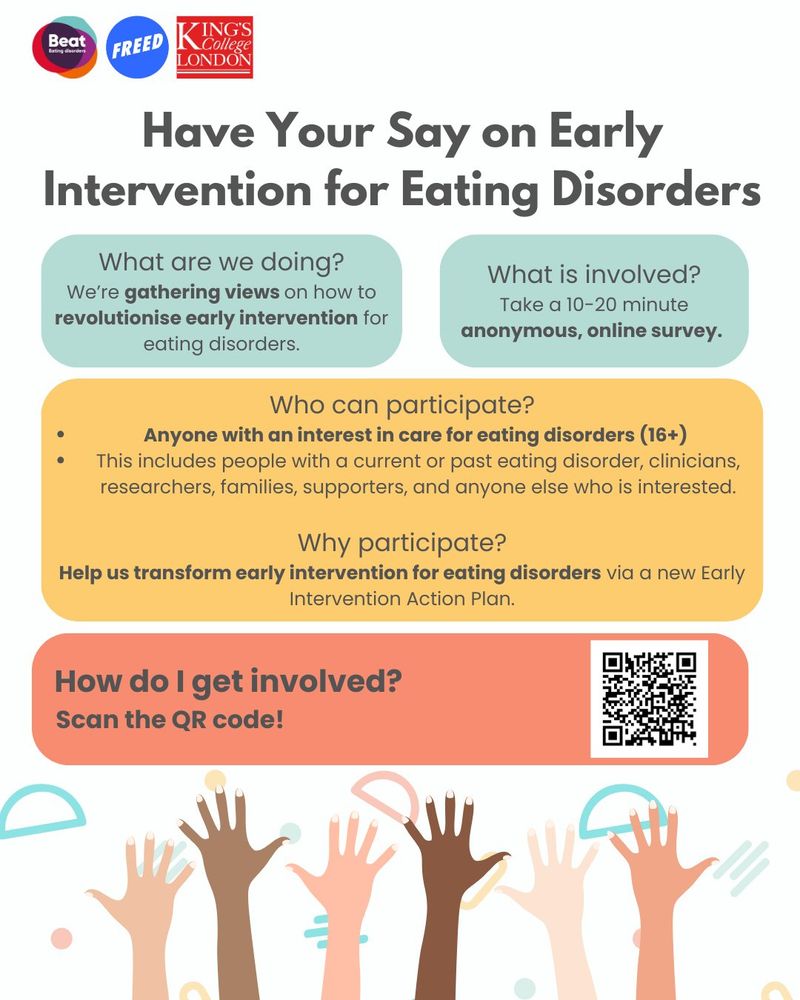
Eating Disorders Research Survey - https://qualtrics.kcl.ac.uk/jfe/form/SV_1Xlzef8GdoVZu0C
https://linktr.ee/ed_crn
✨Here’s a glimpse of what joining the EDCRN as a site will look like!
To learn more or express interest, email [email protected]
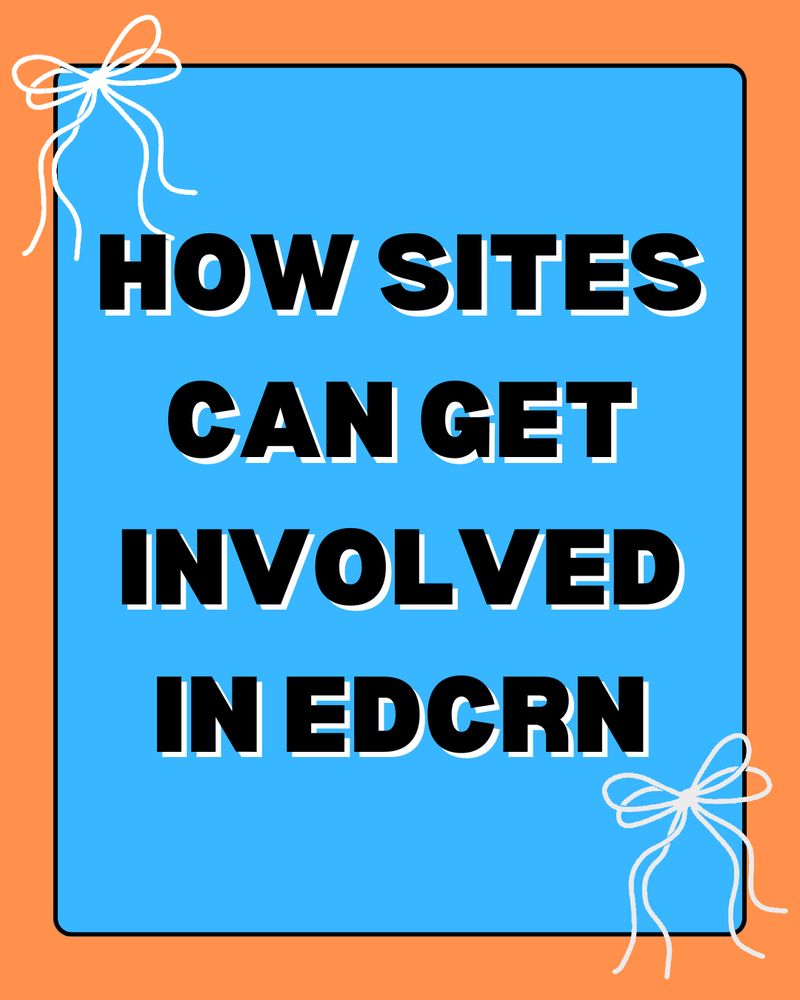



✨Here’s a glimpse of what joining the EDCRN as a site will look like!
To learn more or express interest, email [email protected]
Men deserve to be included, feel seen, and feel supported.
At EDCRN, we’re pushing for better understanding, recognition, and treatment of eating disorders in men 💚
#edcrn #eatingdisorders #eatingdisordersresearch #mensmentalhealth



Men deserve to be included, feel seen, and feel supported.
At EDCRN, we’re pushing for better understanding, recognition, and treatment of eating disorders in men 💚
#edcrn #eatingdisorders #eatingdisordersresearch #mensmentalhealth
🔗 Take part in our survey now, link in bio
Closes: 16th Nov, Midnight
#eatingdisorderresearch #eatingdisoder #edcrn #researchmatters #edawareness #mentalhealth

🔗 Take part in our survey now, link in bio
Closes: 16th Nov, Midnight
#eatingdisorderresearch #eatingdisoder #edcrn #researchmatters #edawareness #mentalhealth
We are excited to have them on board. 🎉 Welcome to the team! #EDCRN @edgiuk.bsky.social @gladstudy.bsky.social #EatingDisorder




We are excited to have them on board. 🎉 Welcome to the team! #EDCRN @edgiuk.bsky.social @gladstudy.bsky.social #EatingDisorder
Please help us develop some key messaging to deliver to stakeholders to help increase investment in eating disorder research by completing the following survey!
qualtrics.kcl.ac.uk/jfe/form/SV_...

Please help us develop some key messaging to deliver to stakeholders to help increase investment in eating disorder research by completing the following survey!
qualtrics.kcl.ac.uk/jfe/form/SV_...
Read the paper here: pubmed.ncbi.nlm.nih.gov/40640949/



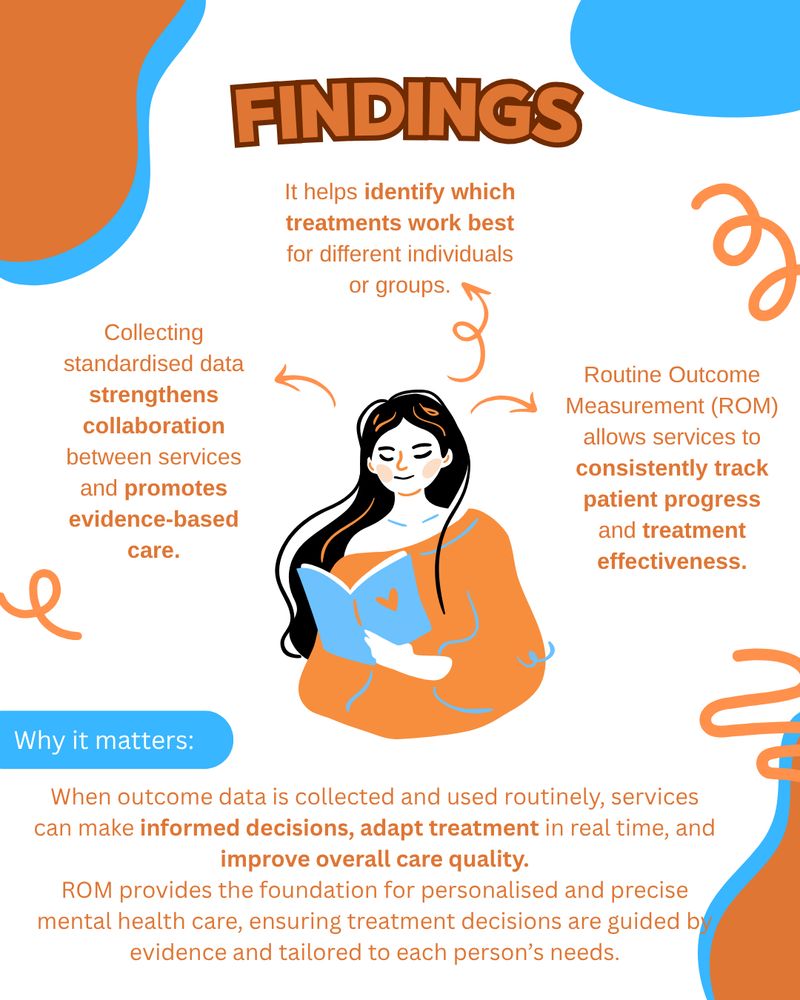
Read the paper here: pubmed.ncbi.nlm.nih.gov/40640949/




Read the paper here: pubmed.ncbi.nlm.nih.gov/40640949/
The theme this year is ‘Access to Services - Mental Health in Catastrophes and Emergencies’.




The theme this year is ‘Access to Services - Mental Health in Catastrophes and Emergencies’.
@annacarnegie.bsky.social from @edcrn.bsky.social talks about the importance of trust in treatment, and how being treated as a unique individual with different interests and hopes for the future helped her recover from anorexia.
www.dumpthescales.org/post/seven-p...

@annacarnegie.bsky.social from @edcrn.bsky.social talks about the importance of trust in treatment, and how being treated as a unique individual with different interests and hopes for the future helped her recover from anorexia.
www.dumpthescales.org/post/seven-p...
To read the paper, see 👉 pubmed.ncbi.nlm.nih.gov/40878998/




To read the paper, see 👉 pubmed.ncbi.nlm.nih.gov/40878998/








Funded by us, a new study has identified a standardised dataset to be collected by a clinical research network in the UK, EDCRN (@edcrn.bsky.social). [1/3]

Funded by us, a new study has identified a standardised dataset to be collected by a clinical research network in the UK, EDCRN (@edcrn.bsky.social). [1/3]
Our paper on the development of the EDCRN dataset, created through consensus-building workshops, has now been published! 🎉The team held two workshops to agree on the information that should be collected in the dataset. Find out our consensus activities below🧵👇




Our paper on the development of the EDCRN dataset, created through consensus-building workshops, has now been published! 🎉The team held two workshops to agree on the information that should be collected in the dataset. Find out our consensus activities below🧵👇

🧠 Add your voice: qualtrics.kcl.ac.uk/jfe/form/SV_...
🧠 Add your voice: qualtrics.kcl.ac.uk/jfe/form/SV_...
Please follow the link to find out more: tinyurl.com/LEADINGStudy1
Please follow the link to find out more: tinyurl.com/LEADINGStudy1
A wonderful opportunity to chat about EDCRN @edgiuk.bsky.social and the importance of continued investment in ED research.
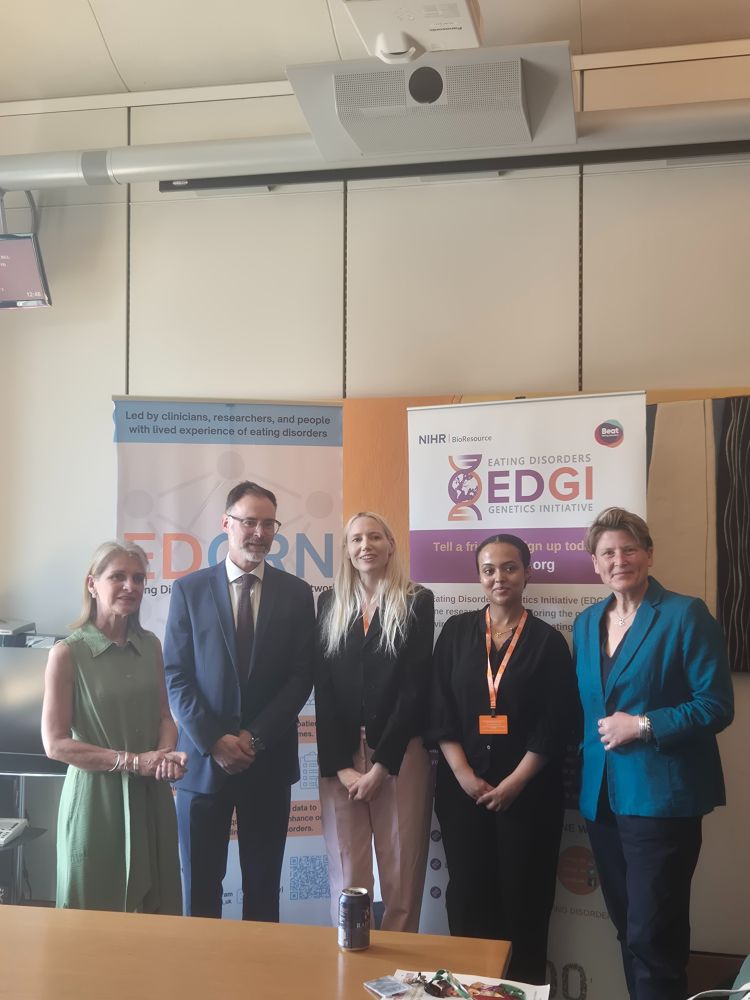
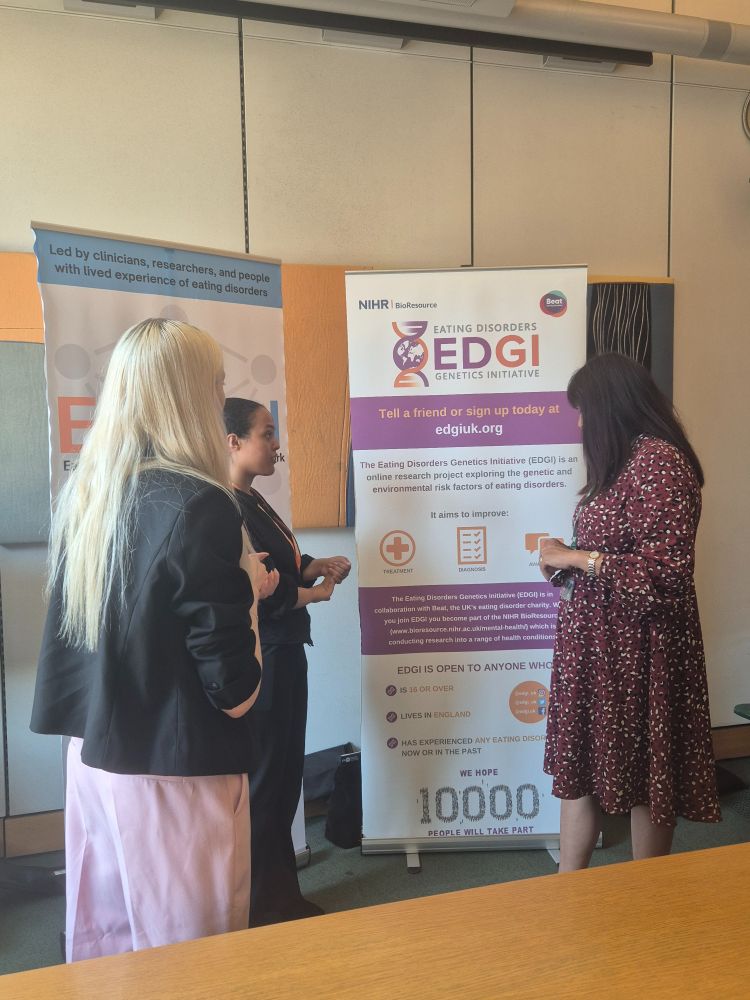
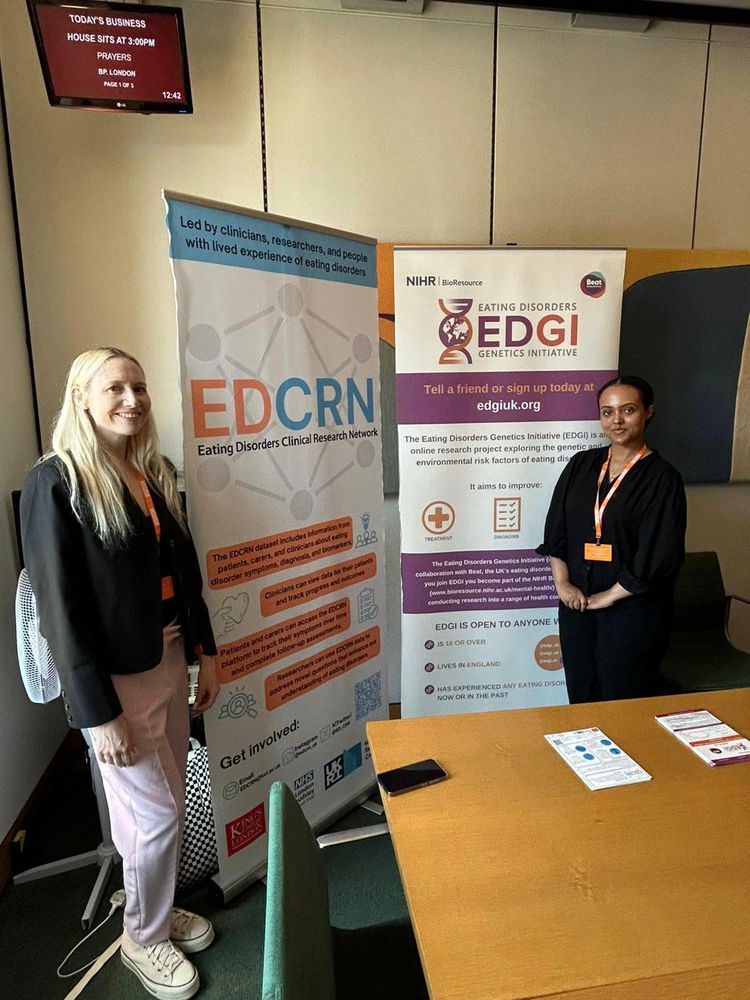
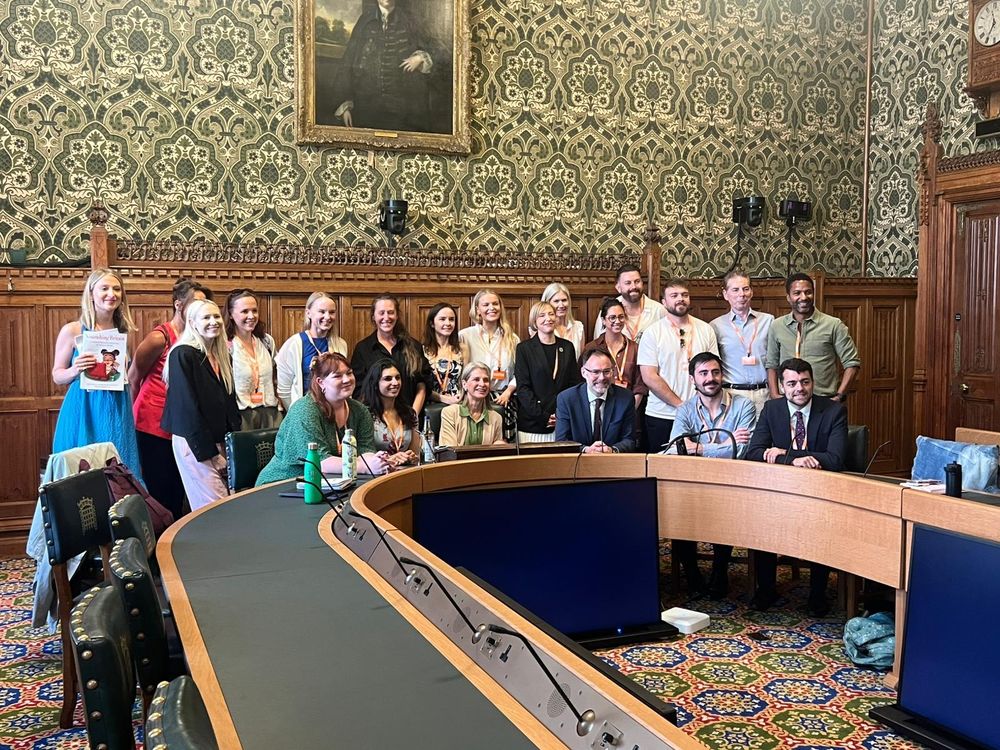
A wonderful opportunity to chat about EDCRN @edgiuk.bsky.social and the importance of continued investment in ED research.
For too long, eating disorders have been misunderstood - it was therefore great to offer an opportunity to improve ED awareness.
Thank you to @edgiuk.bsky.social, @dumpthescales.bsky.social & @edcrn.bsky.social joining us🤝


For too long, eating disorders have been misunderstood - it was therefore great to offer an opportunity to improve ED awareness.
Thank you to @edgiuk.bsky.social, @dumpthescales.bsky.social & @edcrn.bsky.social joining us🤝
